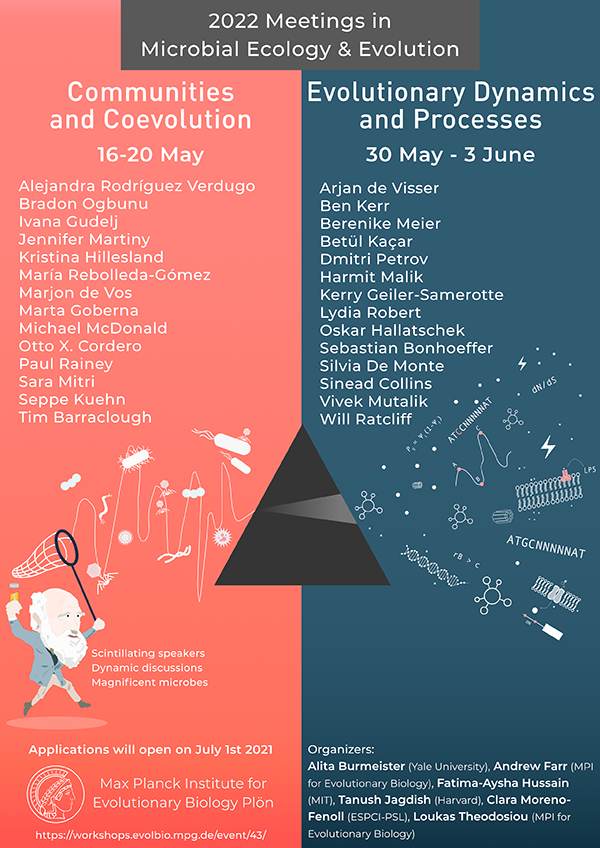Speaker
Description
Microbial ecosystems generally consist of communities with a complex composition. Prolonged propagation in a new environment may impose various selective pressures that can change species composition. Over the short term, ecological processes such as species sorting may be most prominent. Over the longer term, novel mutations in specific players of the community may add to the shaping of ecosystem dynamics. My contribution will highlight various a specific experiment that we conducted to address various questions. What happens when natural bacterial communities of different origin are brought in a novel, yet similar environment? Will comparable starting communities converge to the same composition, will they remain different or become even more different from each other over time, what factors drive this? We used microbial communities from a traditional fermented milk product from Zambia, mabisi, that harbours natural microbial communities consisting of around 10 distinct microbial types. Six comparable but different natural microbial communities from a traditional fermented food were each split into five identical replicates, which underwent 16 repeated propagation cycles in a novel, common environment. We compared bacterial species composition at the start and the end of the experiment. We found that differences in starting community led to significant differences in final community composition during prolonged propagation in the common new environment. This laboratory approach was complemented by field experiments in Zambia where we tested the effect of different selection pressure (methods of processing) shape microbial communities over eco-evolutionary time-scales. We propagated replicate microbial communities in various substrates at replicate farms involving local processors. Across replicate farms, we found that processing method leads to a divergence of microbial community patterns that is consistent across farms and their raw milk. At present, we are following up with formulation of synthetic communities of around 5 strains that are propagated over hundreds of generations and both culture based and metagenomic analysis to detect adaptative mutations in evolving lineages that are part of synthetic communities. Short term experiments linking species profiles to metabolite profiles will inform models on how metabolic interactions lead to species co-existence and expectations of eco-evolutionary dynamics upon transfer to different (combinations of) substrates. We likely are able to report first results on this in May 2022. Since our model system is a traditional fermented food from Zambia (Africa) and our results help to formalize traditional processing of these products. My contribution will briefly highlight several aspects of how fundamental science in ecology and evolution can promote development and food security.

